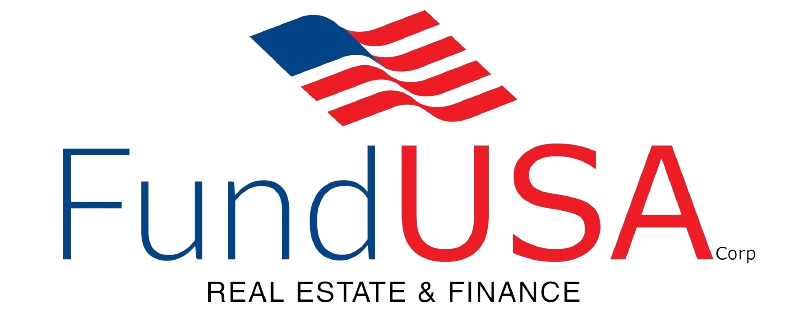Understanding the Home Buying Process
The journey of purchasing a home can be both exciting and overwhelming, particularly for first-time buyers. To ensure a successful experience, it is crucial to understand the essential steps involved in the home buying process. The first stage often begins with obtaining pre-approval for a mortgage. This involves lenders evaluating the buyer’s financial situation to determine how much they can borrow. A mortgage pre-approval not only helps buyers establish a budget but also signals to sellers that they are serious and financially capable of purchasing a home.
Once pre-approved, the next step is house hunting. During this phase, buyers should identify their priorities, such as location, size, and amenities, which can significantly influence their choice. Utilizing online platforms, engaging real estate agents, and visiting open houses are common methods for exploring potential properties. It is beneficial for buyers to remain flexible during this phase, as the ideal home may differ from their initial expectations.
Upon finding a suitable property, buyers will need to make an offer. This involves negotiating a price with the seller, which may include contingencies based on inspections or financing. Having a skilled real estate agent can be invaluable during this process, helping to ensure that offers are competitive while also protecting the buyer’s interests. Once both parties reach an agreement, the next phase is closing the deal. This stage requires thorough due diligence, including home inspections, finalizing mortgage details, and addressing any legal requirements. Successfully navigating these steps can lead to a smooth transition into homeownership, making the investment worthwhile for prospective buyers.
Key Requirements for Buying a Home
When embarking on the journey to purchase a home, it is crucial for prospective buyers to be well-informed about the key requirements involved in the process. Understanding these prerequisites not only streamlines the home buying experience but also positions buyers for better negotiations and successful transactions.
One of the foremost considerations is the financial aspect, starting with the buyer’s credit score. Typically, most lenders require a credit score of at least 620 to qualify for a conventional mortgage. However, scores above this threshold can yield more favorable loan terms and lower interest rates. Therefore, prospective buyers should take time to assess and improve their credit scores before applying for a loan.
Another significant factor is the down payment, which is usually a percentage of the property’s purchase price. While traditional loans often require a 20% down payment, various programs exist that allow for lower down payments, sometimes as low as 3%. Understanding the options available in this regard is essential as it affects the overall financial commitment of the buyer.
Income verification is also a vital component of the buying process. Lenders require proof of income to ensure that buyers can manage monthly mortgage repayments. Typical documentation may include recent pay stubs, tax returns, and bank statements. This not only demonstrates financial stability but also helps in determining the maximum loan amount for which the buyer may qualify.
Additionally, prospective home buyers should prepare necessary identification and proof of employment documentation, which are standard requirements for mortgage applications. Items such as a state-issued ID, Social Security number, and employment verification letters are often requested. Being organized and proactive in acquiring these documents can mitigate delays in the home buying process.
Common Questions and Answers for First-Time Buyers
First-time home buyers often encounter a myriad of questions that may cause anxiety or uncertainty during the purchasing process. This section addresses some of the most frequently asked questions (FAQs) to provide a clearer understanding of the real estate landscape and assist buyers in making informed decisions.
One of the primary concerns for home buyers is the financial aspect, particularly regarding closing costs. Generally, buyers should anticipate closing costs to range between 2% to 5% of the home’s purchase price. These costs can include loan origination fees, appraisal fees, title insurance, and attorney fees, among others. First-time buyers are encouraged to discuss these expenses with their lenders to obtain a more precise estimate tailored to their specific situation. Moreover, some programs may offer assistance or aid in covering these fees, making it essential to investigate available options.
Another common inquiry involves the contingencies that should be included in an offer. Contingencies are clauses that allow buyers to back out of a deal under certain conditions, thereby protecting their interests. Standard contingencies may include financing, appraisal, and inspection contingencies. It is advisable for buyers to work with their real estate agent to ensure that the offer encompasses all necessary contingencies, providing a safeguard against unforeseen issues.
Finding a reputable real estate agent is crucial for first-time buyers, as a knowledgeable agent can provide invaluable guidance throughout the home buying journey. Buyers should seek recommendations from friends or family, research online reviews, and interview multiple agents to understand their expertise and compatibility. A reliable agent will not only help identify suitable properties but also navigate negotiations and paperwork effectively, ensuring a smoother experience.
By addressing these common questions, first-time home buyers can feel more confident as they embark on their home buying journey, transforming what can often be a daunting process into a more manageable experience.
Resources for Home Buyers
Embarking on the journey to home ownership can be both exciting and daunting. However, prospective home buyers have access to a wealth of resources that can assist them in navigating this complex process. Below is a curated list of valuable tools and services designed to empower home buyers and enhance their experience.
One essential resource is mortgage calculators. These online tools allow potential buyers to estimate monthly payments by inputting variables such as loan amount, interest rate, and loan term. By using a mortgage calculator, buyers can understand their borrowing capacity and gauge what they can afford based on their financial situation. Numerous reputable websites feature these calculators for free, making them accessible to everyone.
Home inspection services are another critical resource. A thorough home inspection can reveal underlying issues in a property that may not be evident at first glance. Engaging a certified home inspector gives buyers peace of mind and helps to inform their purchase decision. Websites such as the American Society of Home Inspectors provide directories to find qualified professionals in local areas.
Furthermore, financial planning tools can aid buyers in budgeting for home ownership. Applications and software that track expenses, savings goals, and investment strategies can be extremely beneficial. Not only do they help in preparing for a down payment, but they also provide insights into affordability based on long-term financial objectives.
In addition, various websites and organizations dedicate themselves to providing comprehensive home buying guidance. These resources often include articles, FAQs, and forums where buyers can pose questions and receive advice from experts. Utilizing these platforms can significantly enhance the knowledge base of home buyers and facilitate informed decision-making.
By leveraging these resources, home buyers can equip themselves with the necessary tools and knowledge, fostering a more confident and informed approach to purchasing a home.


